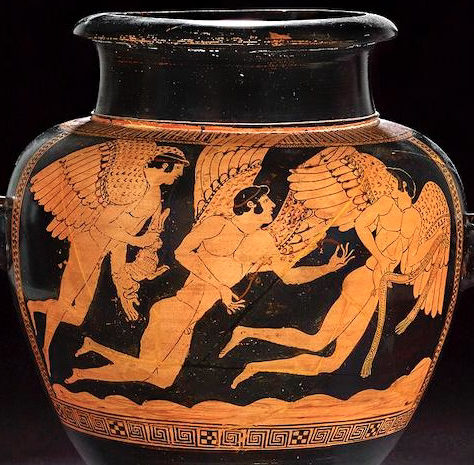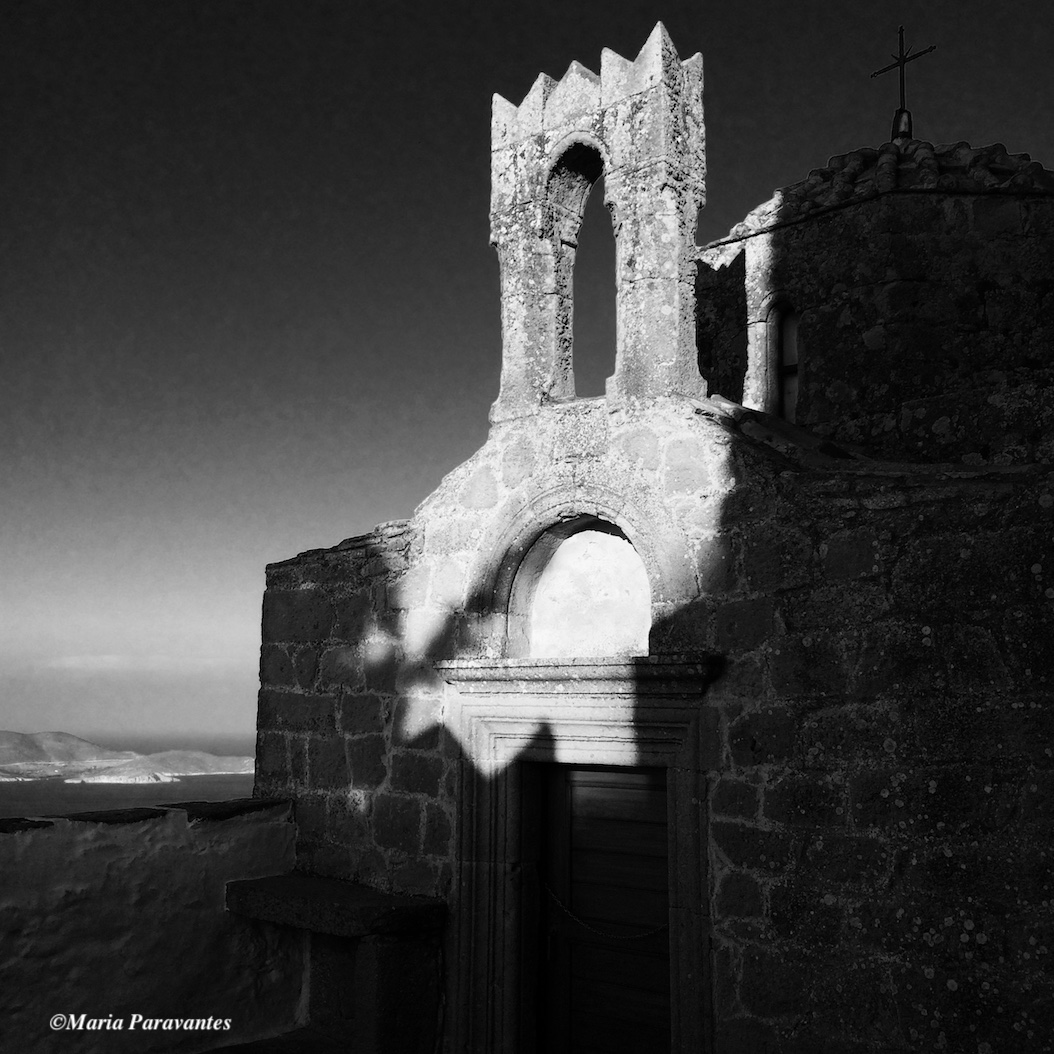
Secular and sacred unite during Great and Holy Week leading up to the Resurrection of Christ (“Anastasi”) and Greek Easter Sunday. In this week, Orthodox across the globe flock to their parishes to partake in the centuries-old religious rituals that make Easter the most celebrated and venerated holiday of the year.
Hymns and ecclesiastical (church) chants feature prominently in these sacraments as the “psaltes” (mostly male cantors) accompany the priest who during the liturgy.
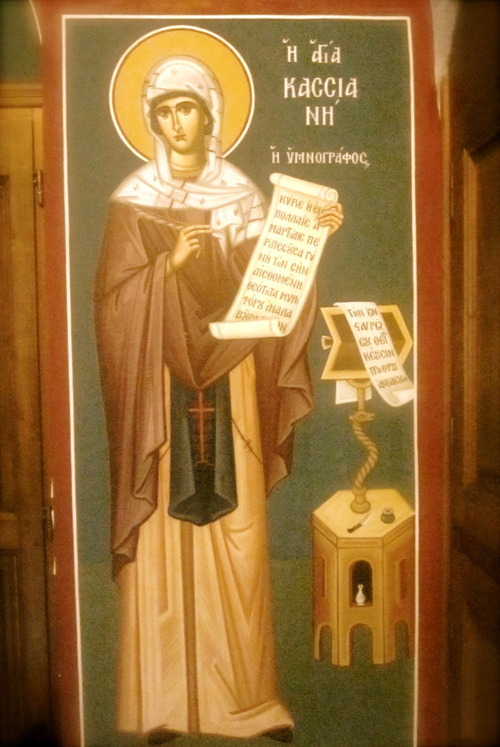
Dating back to Byzantium, but considered a continuation of Ancient Greek monophonic music, a large part of Byzantine musical art is modal, dedicated to religion and composed on the eight-mode system (octoechos). The “troparion” is usually a short one-stanza hymn often chanted between psalm verses. The sacred hymns chanted during Greek Orthodox Holy Week conjure images of Christ’s Passion invoking among the faithful feelings of piety and spirituality.
One the most mesmerizing moments in the rituals of Holy Week is the “Troparion tis Kassianis” (The Hymn of Kassiani) chanted once a year on the evening of Holy Tuesday.
Young and old take their spot in the church to hear the verse of Sister Kassiani (later a saint), who speaks of a woman’s sins, her devoted love and her plea for forgiveness. Though reminiscent of Mary Magdalene, Kassiani is a very different woman.
►Holy Friday: A Greek Orthodox Day of Mourning
The musical composition embracing Kassiani’s poetry is so imposing that it leaves worshipers spellbound. Performed here by professor of Byzantine music and arch cantor Nikodimos Kavarnos and his choir:
The hymn, written in the 9th century, speaks of the woman who anoints Christ’s feet and seeks His forgiveness for her sins.
Sensing Thy divinity, O Lord,
a woman of many sins,
takes it upon herself
to become a myrrh-bearer
and in deep mourning
brings before Thee fragrant oil
in anticipation of Thy burial; crying:
“Woe to me! What night falls on me,
what dark and moonless madness
of wild-desire, this lust for sin.
Take my spring of tears
Thou Who drawest water from the clouds,
bend to me, to the sighing of my heart,
Thou who bendedst down the heavens
in Thy secret Incarnation,
I will wash Thine immaculate feet with kisses
and wipe them dry with the locks of my hair;
those very feet whose sound Eve heard
at the dusk in Paradise and hid herself in terror.
Who shall count the multitude of my sins
or the depth of Thy judgment,
O Savior of my soul?
Do not ignore thy handmaiden,
O Thou whose mercy is endless”.
►What Greeks Do on Orthodox Easter
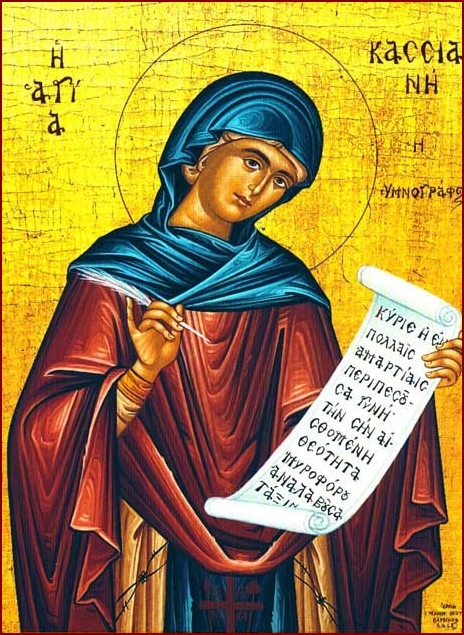
Legend has it that Sister Kassiani was at the monastery writing the hymn when Byzantine Emperor Theophilos arrived. To avoid him she hid leaving, however, her incomplete poem behind. Theophilos realized it was Kassiani’s inspiration and added the following verse: “Those feet at whose sound Eve hid herself for fear when she heard Thee walking in Paradise in the afternoon.” When he left, Kassiani completed her poem.
There are those, of course, who believe that Kassiani was the “fallen woman” of her poem, but research indicates that this was far from true. She was said to have been one of two brides to compete for the heart (and throne) of Theophilos in AD830. In the competition and despite her beauty and noble descent, Kassiani lost to Theodora, who won the golden apple and became empereress after marrying Theophilos.
The story has it that Kassiani lost because in his efforts to “test” his bride-to-be, Theophilos said “Women are responsible for all evil” referring to Eve. Her sharp comeback caught the emperor off guard. Suggesting the Virgin Mary, she replied: “And of woman all Greatness”. Shocked and insulted by her astuteness he turned to her and said: “You would have been better off had you remained silent,” and handed the apple over to Theodora.
►Three Perfect Greek Easter Getaways
Kassiani abandoned this world and devoted her life to God, forming the Monastery of Kassia, where she later attained sainthood. Besides this hymn, Kassiani is considered to be a very important poet of Byzantium having penned many other works, secular as well as religious, including “Avgoustou Monarhisantos Epi tis Gis” chanted during Christmas in Greece. But she is most of all praised for her dedication to offering her verse to God, expressing through it the path to wholeness and the significance of faith, prayer and forgiveness.
Despite being the theme for a religious poem, The “Hymn of Kassiani” has intrigued many poets and historians throughout time, among them Kostis Palamas, Fotis Kontoglou and Yiannis Psycharis to name but a few.
As heard in the mystical setting of the Greek Orthodox church on Holy Tuesday, amid the lit candles and worshipers of all ages, the “Troparion tis Kassianis” inspires awe not only because it has been chanted for centuries, but because to this day it continues to strike a chord, conveying the one true meaning of Easter: through forgiveness alone can we attain true love – our one and only chance at inner peace.
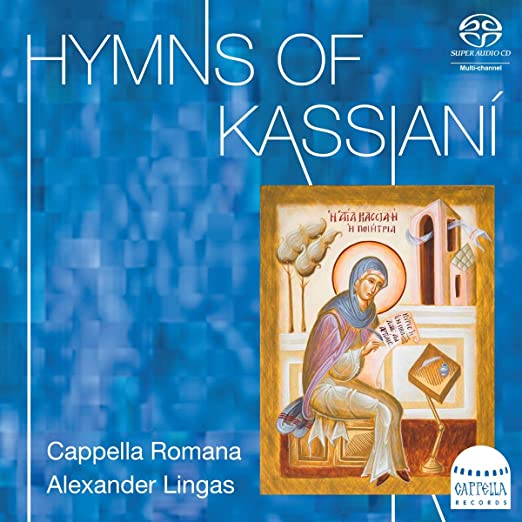
Experience Greek Easter with this CD of the mesmerising “Hymns of Kassiani” delivered by vocal ensemble Cappella Romana, available here in CD version or MP3 here.
“Hronia Polla” and “Kali Anastasi”. May we all carry within our hearts year round the message of Easter: Peace, Love, Compassion.
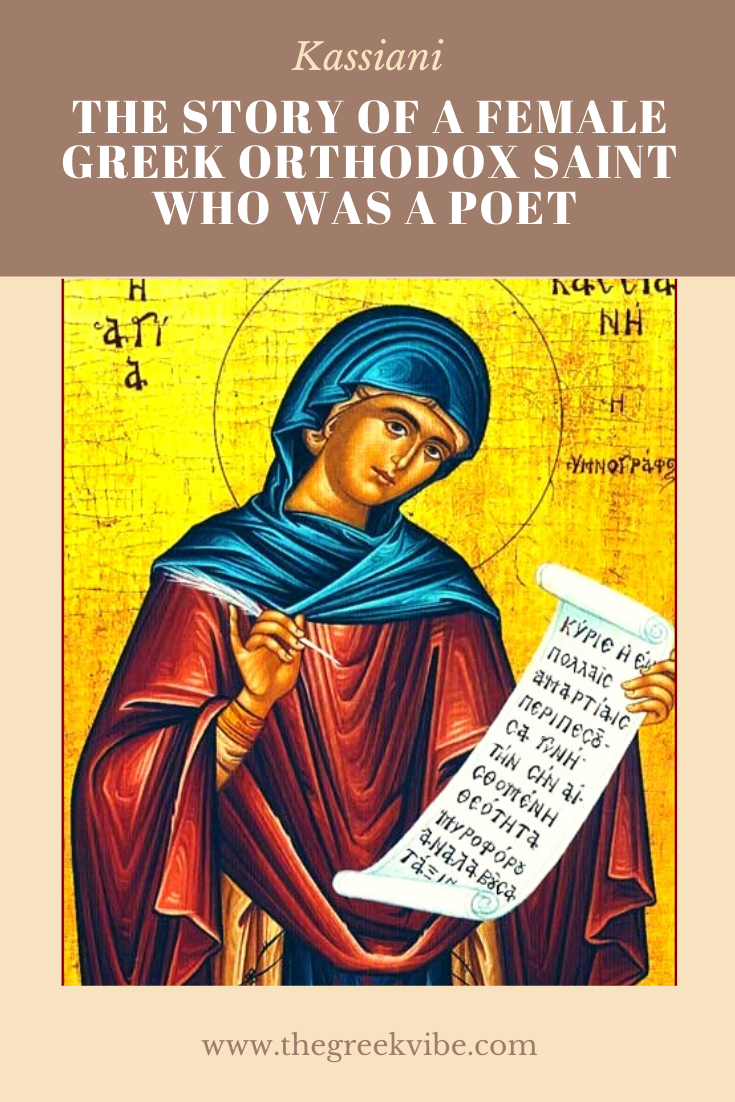
*Photo credit: ‘St Kassiani the Hymnographer’ by the late nun Markella at The Chapel of The Archangels on the island of Patmos.


